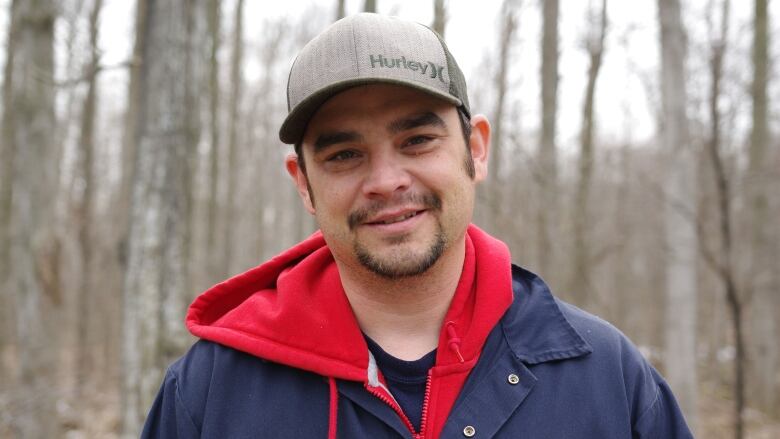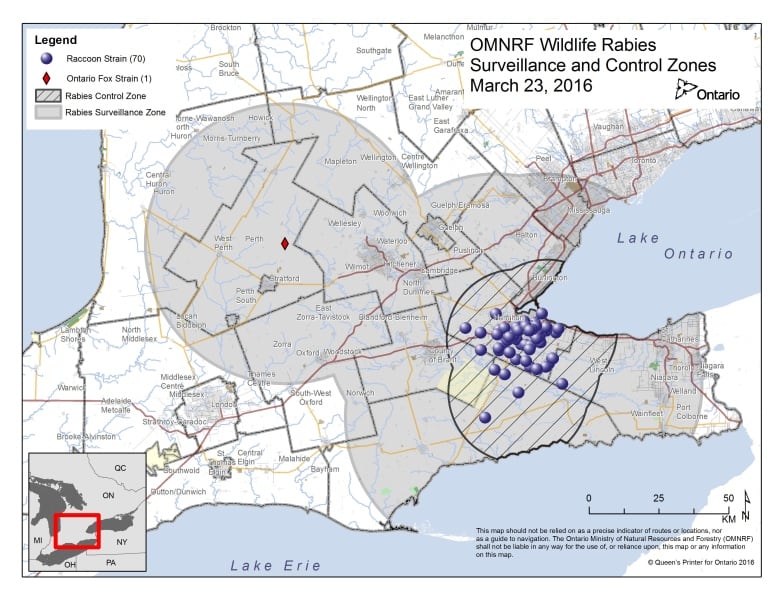Ontario rabies outbreak making wildlife removal dangerous business
Local wildlife removal companies taking extra precautions

With more than 70 cases of raccoon rabies reported in Ontario since December, removing unwanted wildlife form people's homes has become dangerous business, say people who work in the industry.
- Rabies: Wildlife removal workers treating Hamilton as a dangerous area
- Second animal tests positive for rabies in Perth County
Jared Houliston, of All Wildlife Removal Inc., has been removing unwanted skunks, raccoons, squirrels and other animals from local homes for the past 15 years.
But these days, he says he and his technicians are forced to take extra precautions to protect themselves from rabid animals.

Extra precautions
"We're wearing full Kevlar gloves," he said. "We're approaching a lot more cautiously. Once we have the animal, it's put in a trap. We release it, but then, before we put that equipment back into the truck, it is sanitized."
Houliston said the equipment has to be sanitized to remove any animal saliva or urine that could be contaminated with the rabies virus.
"If we were to take our gloves or our hand and touch that, go into our truck, go eat something later or scratch our face or our eye, then we're actually taking that risk of...cross contaminating it into our own body," he said.

Vaccinations
To further minimize the risk of contracting rabies, Houliston said all technicians with his company have been vaccinated against the disease.
"Back in the day, you had to take some long needles into some unpleasant areas," he said.
"Today's needles, you know, they're into the arm.... Medicine has come a long way and the only thing I can say is if anybody's ever bit by a wild animal, go to your doctor immediately."
Although there have been no reported cases of raccoon rabies in Waterloo Region, the Ministry of Natural Resources has included the region in its surveillance zone, and plans to drop vaccinated packages in the area over the summer to prevent the disease from spreading.